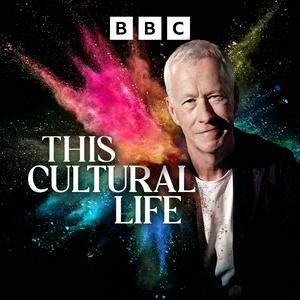Award-winning actor Sir Jonathan Pryce talks to John Wilson about his cultural influences and career. He made his name with the 1975 Trevor Griffiths play Comedians, his role as a stand-up comic winning him a Tony Award after it moved to Broadway. He won an Olivier Award for a landmark production of Hamlet in 1980, and another Tony for his role as The Engineer in Miss Saigon. His huge and diverse list of film credits include Terry Gilliam’s 1985 dystopian drama Brazil, the musical Evita alongside Madonna and, an Oscar nominated performance as Pope Francis in The Two Popes. And he’s been increasingly prolific in the age of television streaming with acclaim for his roles in Game Of Thrones, The Crown, Taboo, Slow Horses and Wolf Hall. He was knighted for services to drama in 2021.
Producer: Edwina Pitman
Archive used:
Listen With Mother, BBC Home Service, 7 February, 1950
Is Your Honeymoon Really Necessary?, Whitehall Theatre, BBC1, 1940s
Protests on Broadway, 6 April 1991
Comedians by Trevor Griffiths, 2nd House, BBC2, 15 March 1975
Jonathan Pryce in Hamlet, The Southbank Show, ITV, 1988
Brazil, Terry Gilliam, 1985


